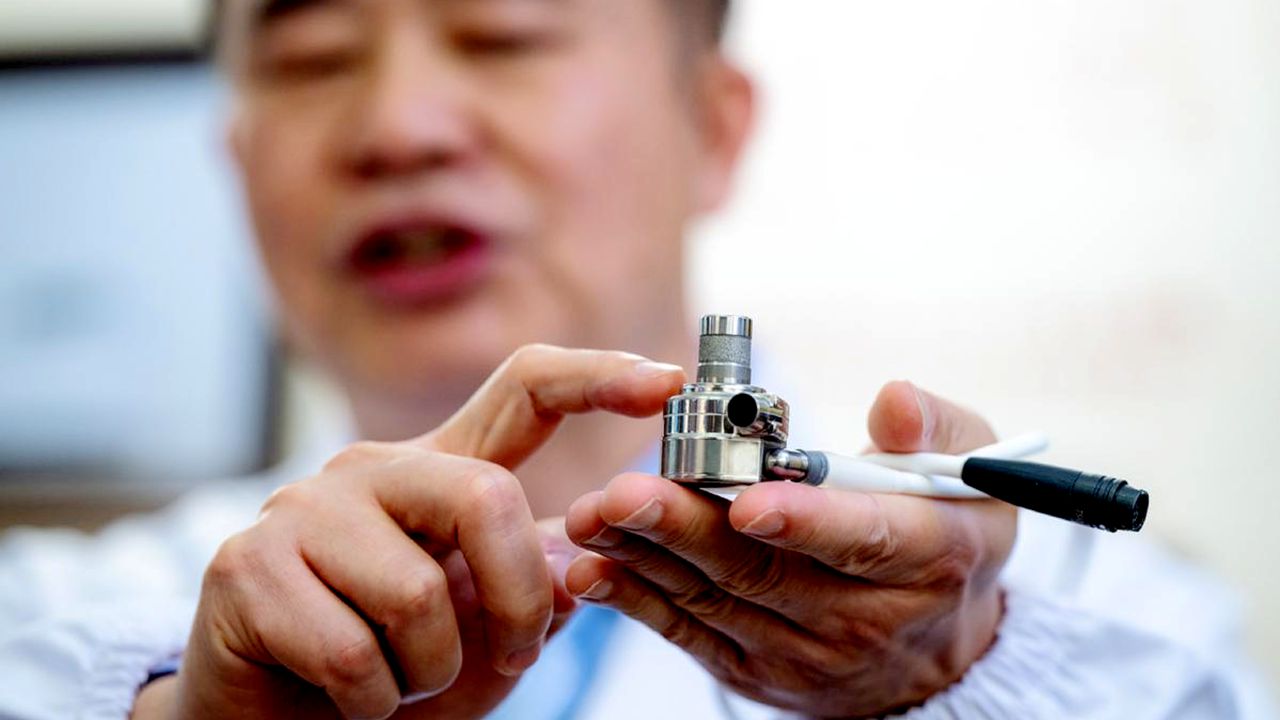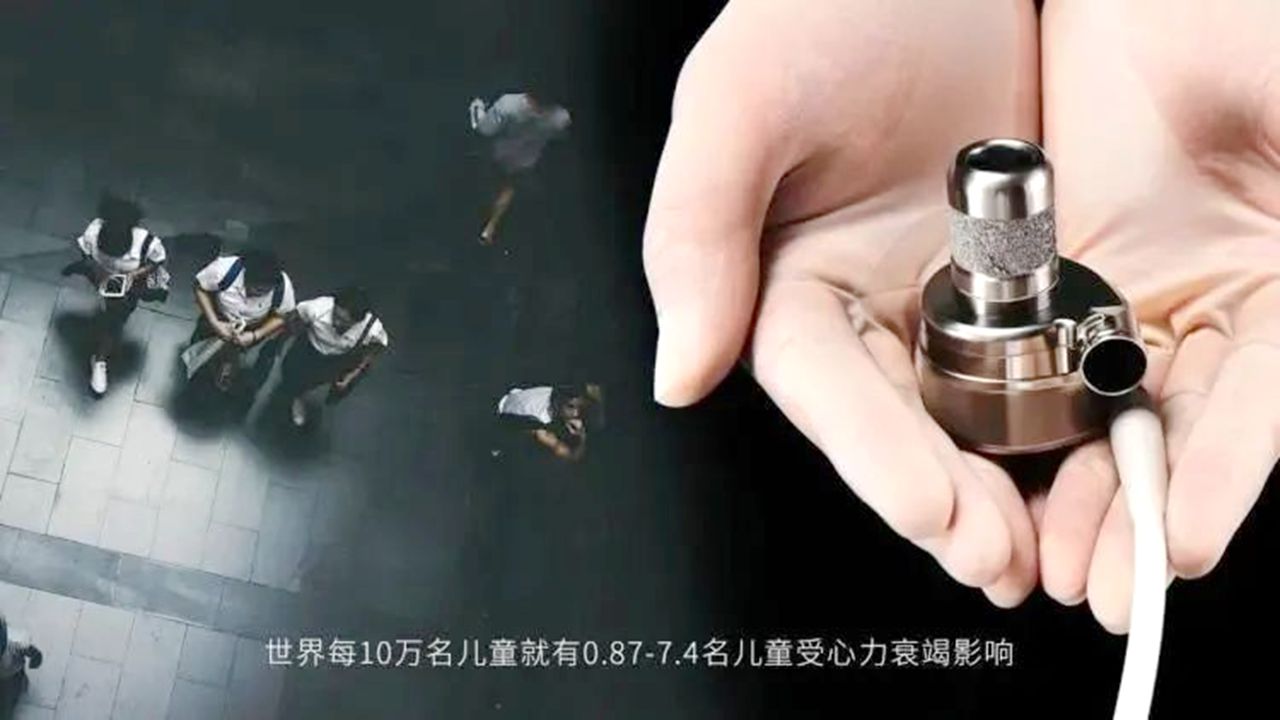World's smallest artificial heart developed by SZ firm saves boy
Writer: | Editor: Zhang Zhiqing | From: | Updated: 2025-04-17
A 7-year-old Chinese boy suffering from end-stage heart failure has become the world's youngest patient to receive a magnetically levitated biventricular assist device. Co-developed by a Shenzhen-based company, the device is the smallest and lightest artificial heart on the market.

A medical worker displays a cutting-edge heart support device designed for children, featuring magnetic levitation technology in Wuhan, Hubei Province, on April 14. Xinhua
The surgery, conducted earlier this month at the Union Hospital of Tongji Medical College of Huazhong University of Science and Technology in Wuhan, capital of Hubei Province, marks a breakthrough that could transform pediatric cardiac care globally, doctors said Tuesday.
A boy going by the pseudonym Junjun received the newly developed heart, which weighing just 45 grams — 50% lighter compared to existing magnetic levitation artificial heart on the market — and measuring 2.9 cm in diameter.
Junjun was diagnosed with dilated cardiomyopathy in May 2024 and later suffered severe cardiogenic shock. Finding it difficult to find a donor heart that matched the boy's O blood type, doctors turned to a homegrown artificial heart.
A team led by cardiac surgeon Dong Nianguo performed the five-hour implantation operation. Junjun began breathing on his own the next day, and his heart function is steadily improving, doctors said.
Pediatric heart failure remains a global medical challenge. In China, about 40,000 children with severe heart failure are hospitalized each year, and 7% to 10% urgently require heart transplants. However, fewer than 100 pediatric transplants are performed annually due to a chronic shortage of donor hearts.

A poster highlights artificial hearts as a reliable treatment option for children with severe heart failure. File photo
Artificial hearts, also called ventricular assist devices, can temporarily support cardiac function, but existing models either cause damage to the circulatory system or are designed primarily for adults.
"Children are not adults with smaller bodies. They need an artificial heart designed specifically for them," Dong said.
The hospital partnered with Shenzhen Core Medical Technology Co. Ltd. in 2021 to develop the third-generation magnetically levitated device, which boasts advantages such as low energy consumption, extended battery life, improved stability for emergency transfers, and precise control of rotational speed, which is adjustable in real time to meet patients' circulatory needs.
Founded in 2016, Shenzhen Core Medical Technology Co. Ltd. is dedicated to the research and development (R&D) of high-end innovative medical devices such as mechanical circulation assist systems. The company has applied for approximately 200 patents both at home and abroad. (SD-Xinhua)